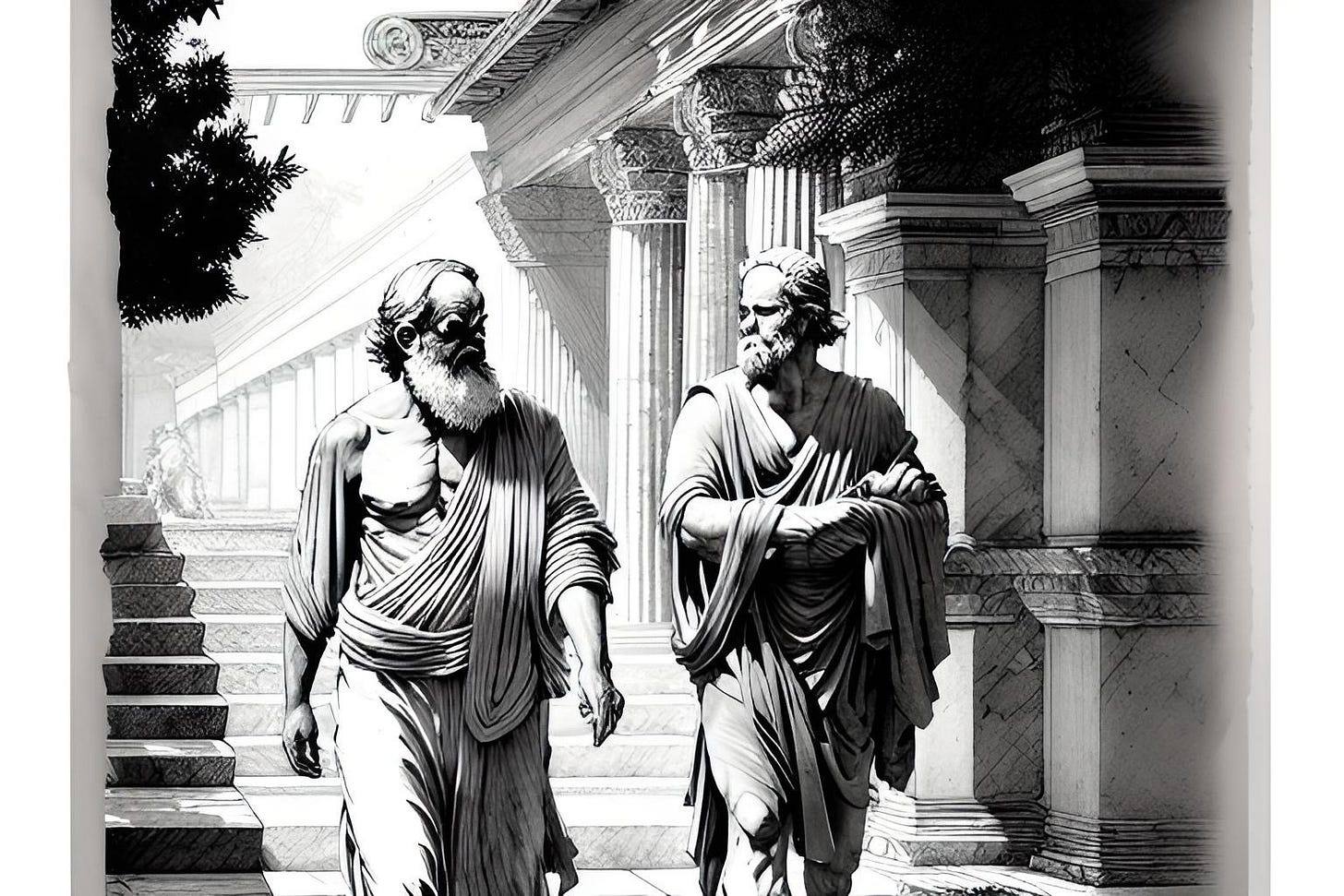“You have to know the past to understand the present.” - Carl Sagan
In today’s society, people saying this often throw a bunch of Third Reich and holocaust references around to show you how today’s society unfortunately resembles that one of Nazi Germany in so many unpleasant ways. This has been done so often that I do not want to bother you with it again. What would you say, if we’d go back way further in history? Would that not be more interesting? You may be surprised of what else you can learn from history.
Who said: “I know that I don’t know?” Everyone knows this, right? It was a man sometimes called the father of all philosophers, Socrates. He didn’t really mean that he didn’t know anything — quite the opposite. He knew perhaps the most important thing — to keep asking questions. Furthermore, he was warning about arrogance, about thinking you know all the answers. Socrates was all about the wisdom of doubt. The less you think you know, he meant, the more ready you are to learn.
Most people have heard about this. I am pretty sure everyone reading this knows Socrates. You sure have heard about him in school or read his name somewhere. And then you’ve forgotten about him and went on with your life. Well, that’s fine, I am sure he wouldn’t mind. But why should you care about him now. Mainly because of the history surrounding him, they are not teaching you in school because they either think it’s not that important or they do not want you to know because it shines an eerie light on today’s society and how they’re treating people who doubt the narrative.
I will also explain to you what Plato has to do with social media and how Aristotle called out the trolls and political blowhards of his time. But let’s start with Socrates.
So, we all know that the great philosopher Socrates was only sure of one thing — the wisdom of doubt. “I know that I do not know.” Let us find our what he really meant by this and why he was a threat to the ruling class of his time because of it.
”Death is better than a life wrongly lived.”
Keep reading with a 7-day free trial
Subscribe to A Lily Bit to keep reading this post and get 7 days of free access to the full post archives.



